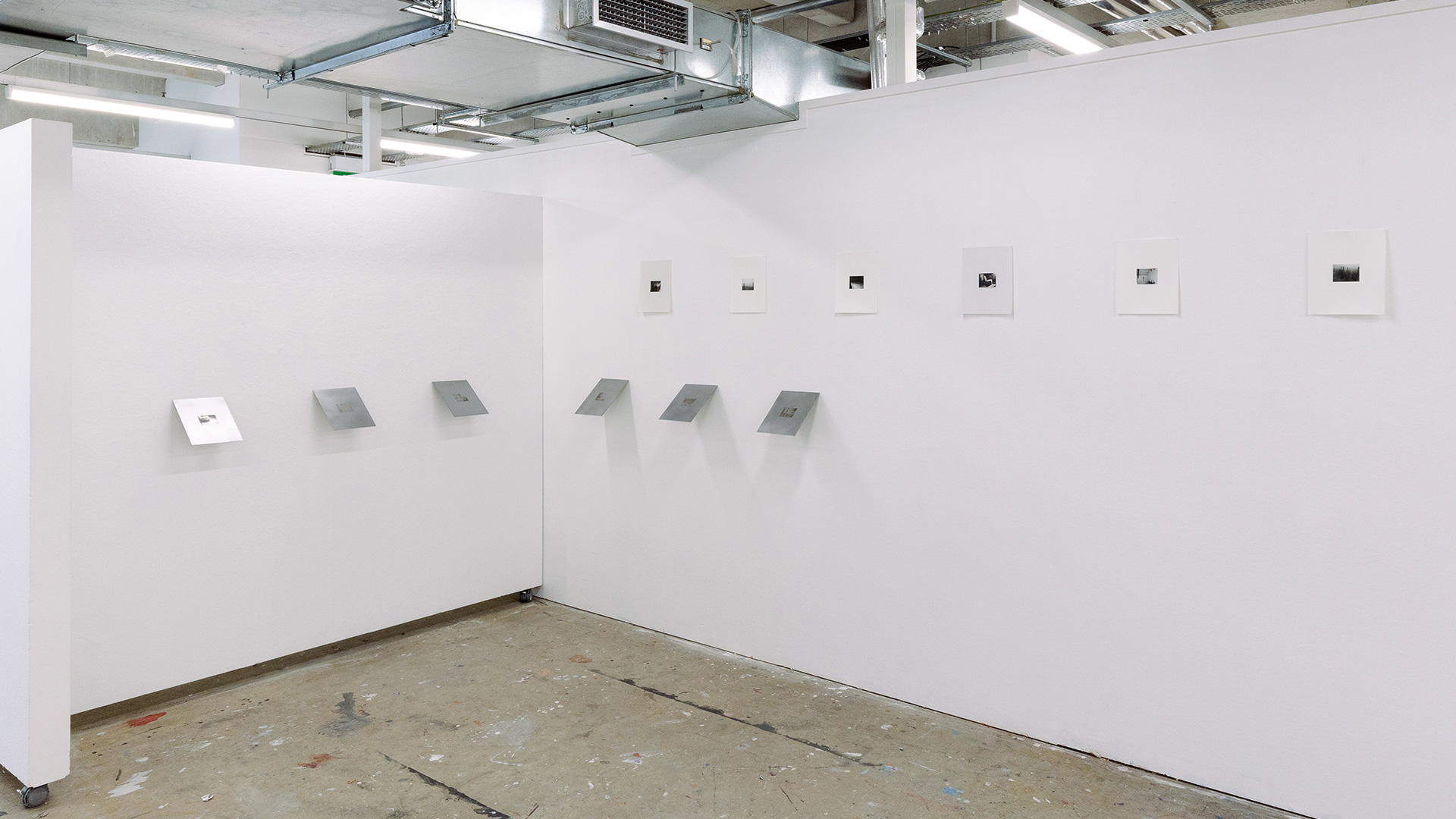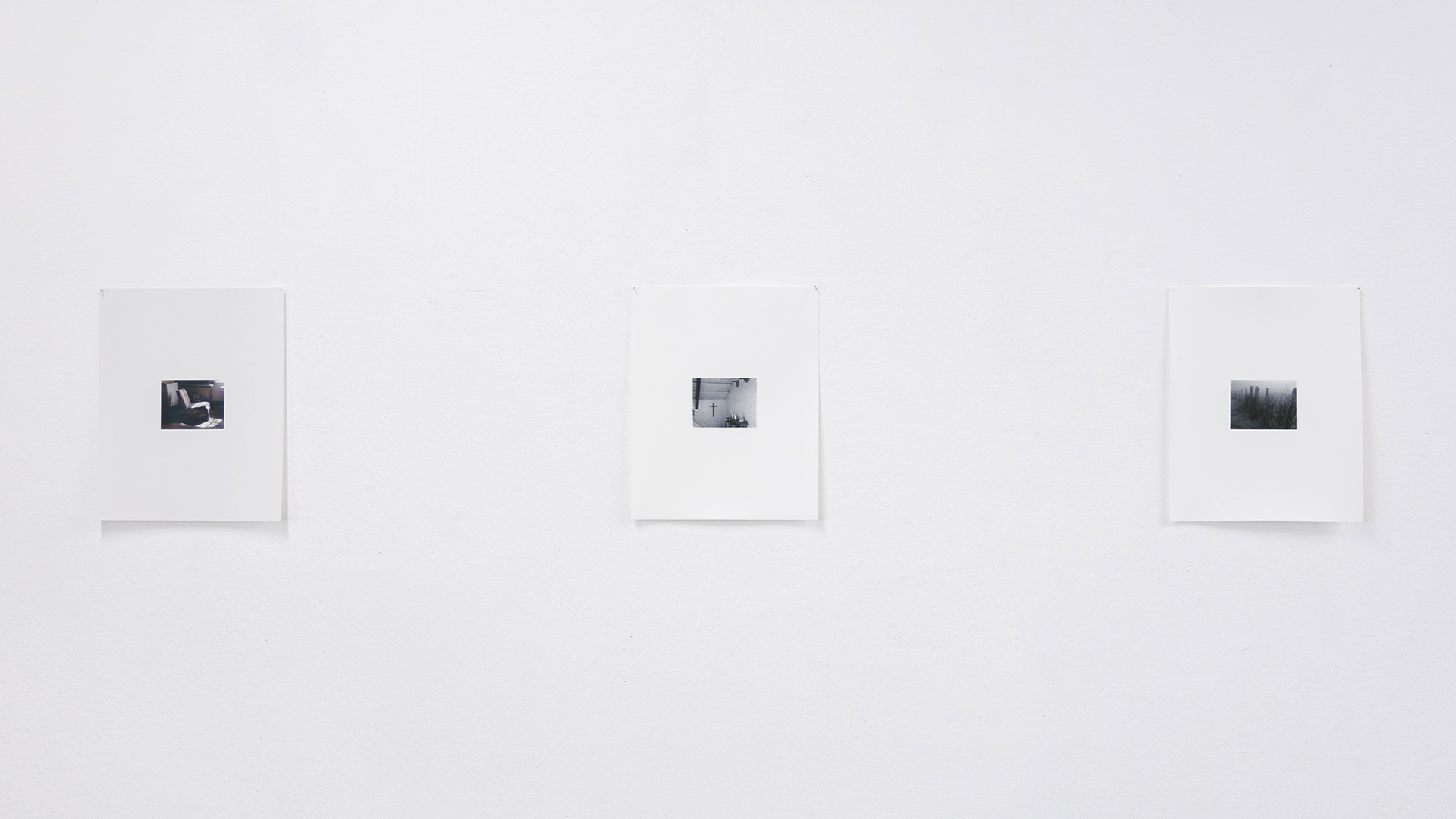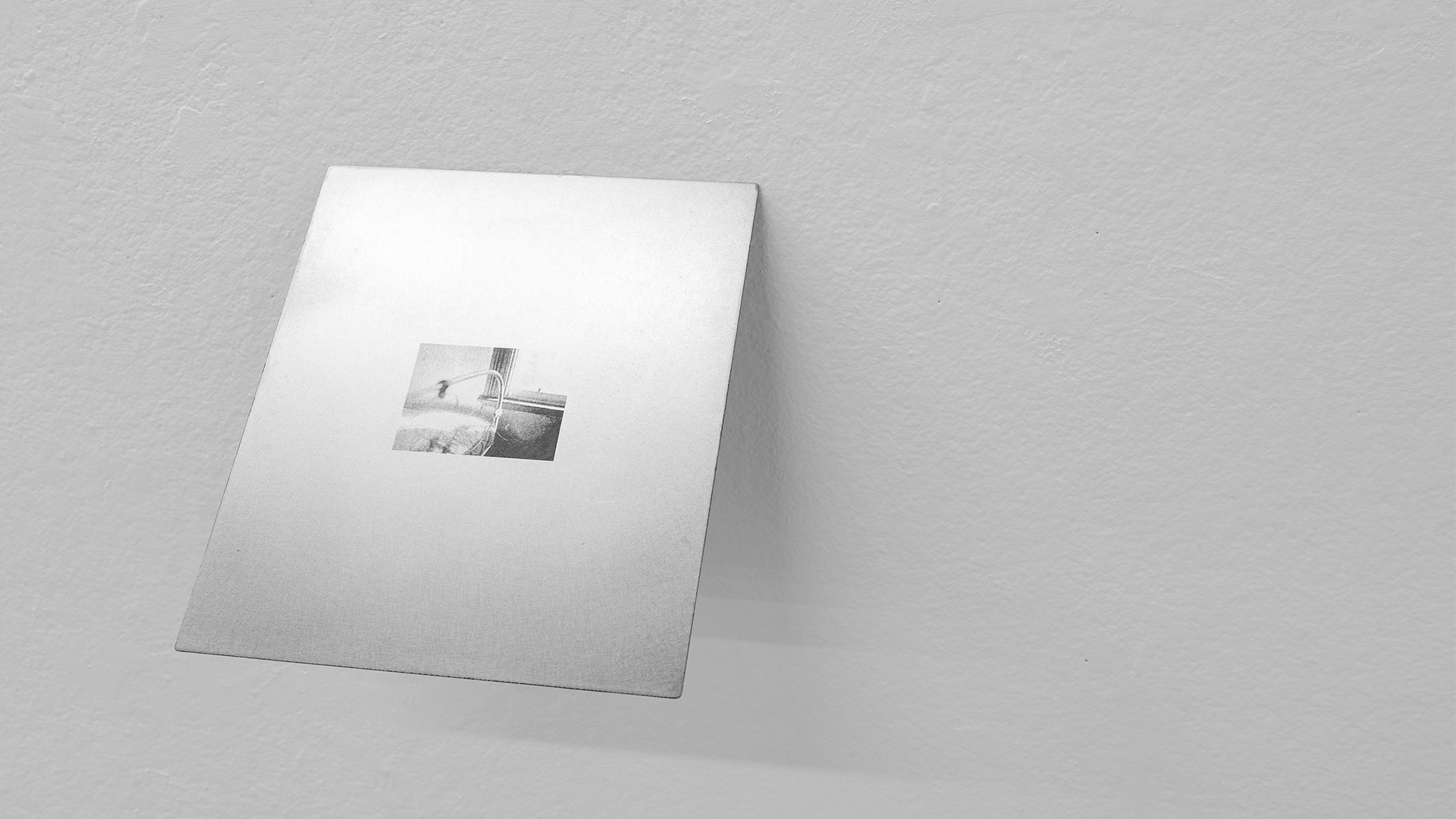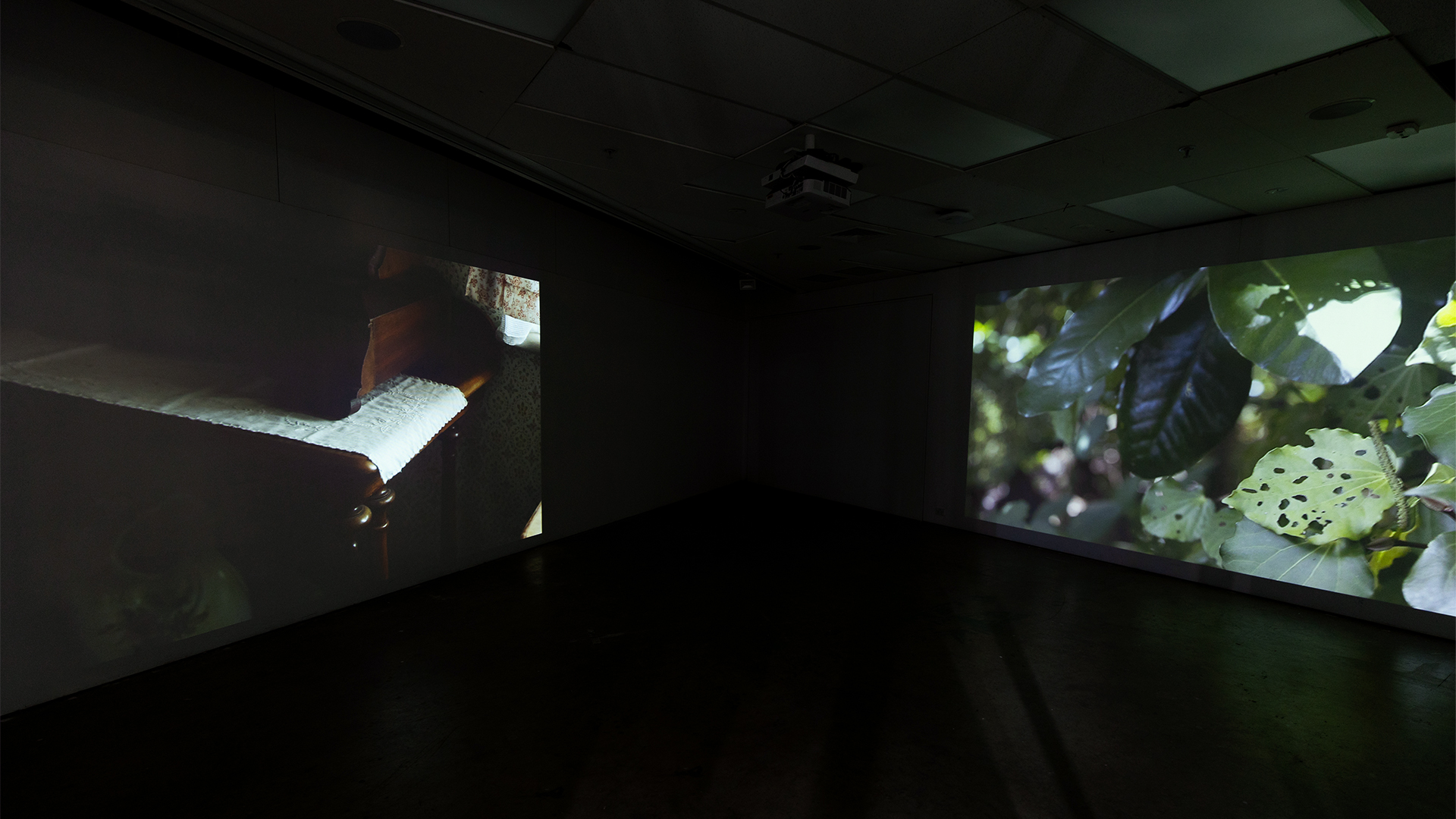
Tess Walker Elliott
A home for children and men

A home for children and men exists at the intersection of the personal and the collective, in contemplation of the complexities of home/land. This practice phenomenologically engages with modalities of performance and trace through assuming the position of a settler woman documenting her surroundings. Images taken at the settler cottages of Ewelme in Pānera and Acacia in Maungakiekie are presented through analogue photographic contact prints, photo-etched steel plates and a digital moving image. In these spaces where time feels contained, a temporal collapse takes place, revealing how the past pervades our present as the role of the colonial ‘home-maker’ within the context of the ‘home-making’ project of colonisation is questioned. Domestic scenes are placed between remnants of agriculture and industry as trace markers of colonial violence. Taken in Puhinui, Warkworth, these sites recall the invasive Kauri gum mining and logging history. The same material is used in the floorboards and furniture of these cottages. Homely objects suddenly lose their neutrality, leaving only silence. This silence and its weight mirror notions of choice and complicity.



